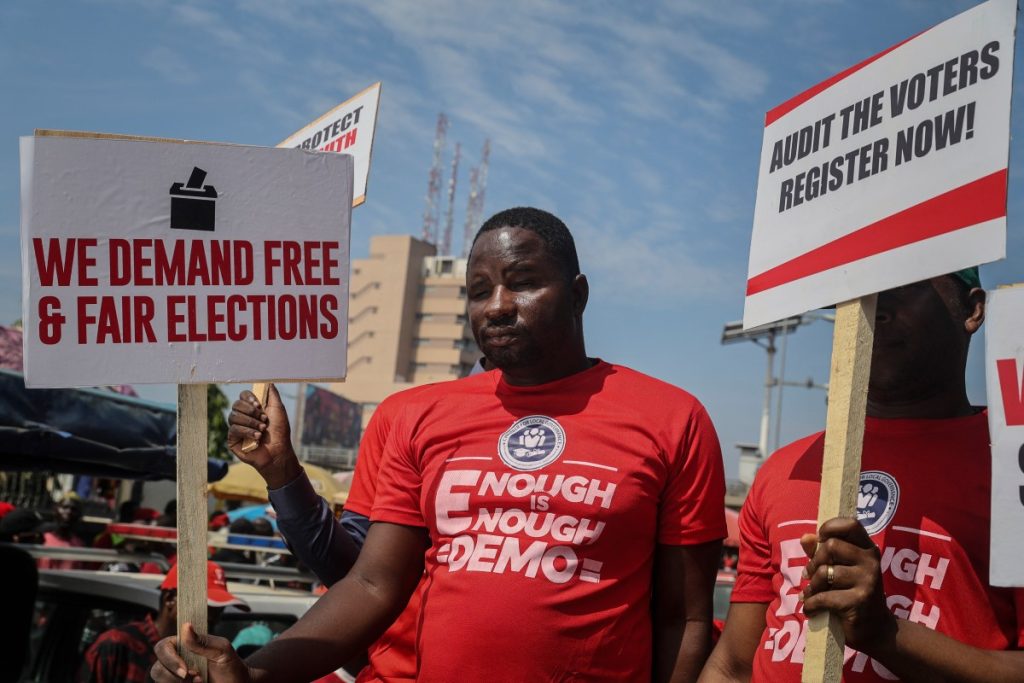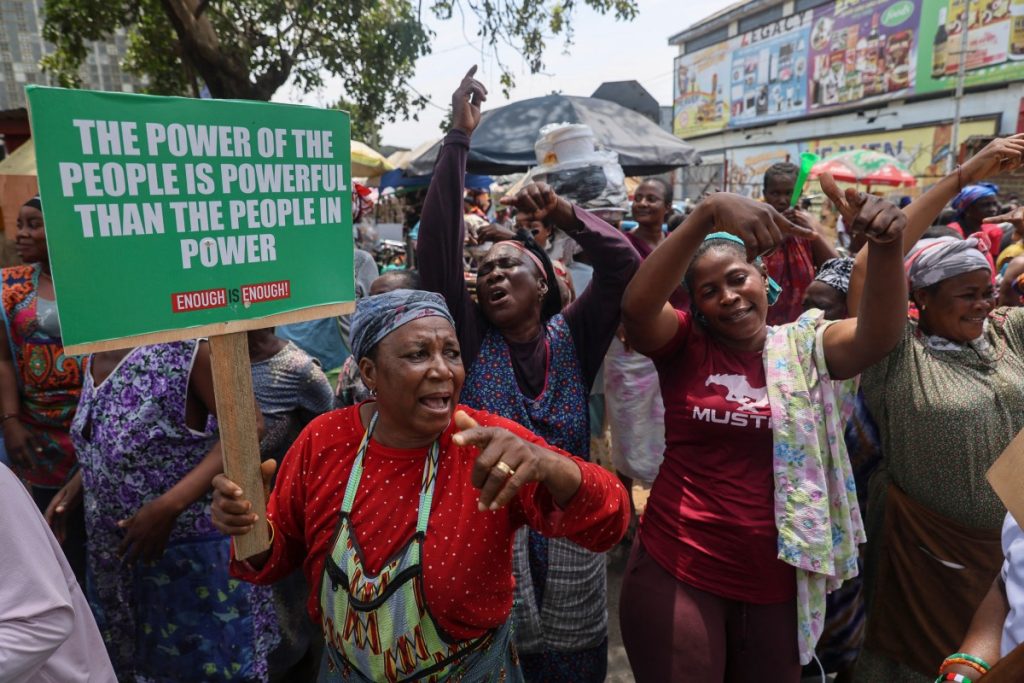Ghana’s upcoming election has become a close contest between the ruling NPP party candidate, current Vice President Mahamudu Bawumia, and former president and NDC party candidate John Mahama.
President Akufo-Addo’s second term was characterised by a severe economic crisis, which included high inflation and a weakened currency, leading to a $3 billion agreement with the International Monetary Fund to help manage Ghana’s debt.
Many citizens are still grappling with the aftermath.
Ghana, known for its oil, gold, and cocoa production and a legacy of political stability, used to attract investors. However, the recent economic challenges and a debt default have diminished the nation’s appeal.

Inflation soared to 54.1 per cent in 2022 before slowing to 23.2 per cent by late 2023, yet many Ghanaians continue to face high expenses, resulting in sporadic protests reflecting discontent with government policies.
A declining cedi and increasing poverty have further weakened public trust in government leadership. The government’s efforts to generate funds through treasury bills have met with resistance, as investors are avoiding what was previously deemed a secure market.
“It will take time to restore public confidence in government securities,” stated Courage Boti, research lead at GCB Capital, referring to the government bonds undergoing restructuring.
“The restructuring was crucial for fiscal relief, but the loss of trust is significant.”
In September, Ghana finalised an agreement with international bondholders, negotiating a 37 per cent haircut on $13 billion of debt. While hailed as an achievement, it represents the largest restructuring of African debt to date, highlighting the severity of Ghana’s crisis.
Security on the Front Burner
Security remains a key election topic. Ghana and neighbouring coastal countries like Benin, Togo, and Ivory Coast are at risk of impacts from insurgent conflicts emerging from their northern borders with Burkina Faso and Niger.
Tensions between the NPP and NDC have also escalated, particularly regarding claims of pro-government favouritism in important institutions such as the Supreme Court and the Electoral Commission.
Economic management has emerged as a critical issue as the presidential election approaches. NPP candidate Bawumia promotes strategies to stabilise the economy and foster growth to secure a rare third term for his party.
However, he finds distinguishing himself from the current government challenging, particularly due to his history as head of Akufo-Addo’s economic management team, which is under close examination.

Former President Mahama, Bawumia’s chief challenger, advocates a new strategy. Analysts from Oxford Economics and others have predicted a Mahama victory, pointing to voter discontent with how the NPP has handled the ongoing crisis.
Bawumia has pointed to strides in macroeconomic stability, noting a recovery in growth to 5.8 per cent during the first half of 2024. However, detractors claim Bawumia’s policies are unoriginal and recycled old strategies.
Mahama has vowed to revisit elements of the IMF agreement to unlock resources for development, focusing on youth employment, agriculture, and infrastructure.
“We cannot persist with the same old practices,” Mahama stated at a rally in the northern city of Tamale.
Recovery is still in progress. Debt-to-GDP ratios are at 84 per cent, with the IMF anticipating a decrease to 55 per cent by 2028. Growth is projected to be a modest 3.4 per cent in 2024, while unemployment rates remain high.
For many Ghanaians, Saturday’s election measures the electorate’s trust in the political system.
